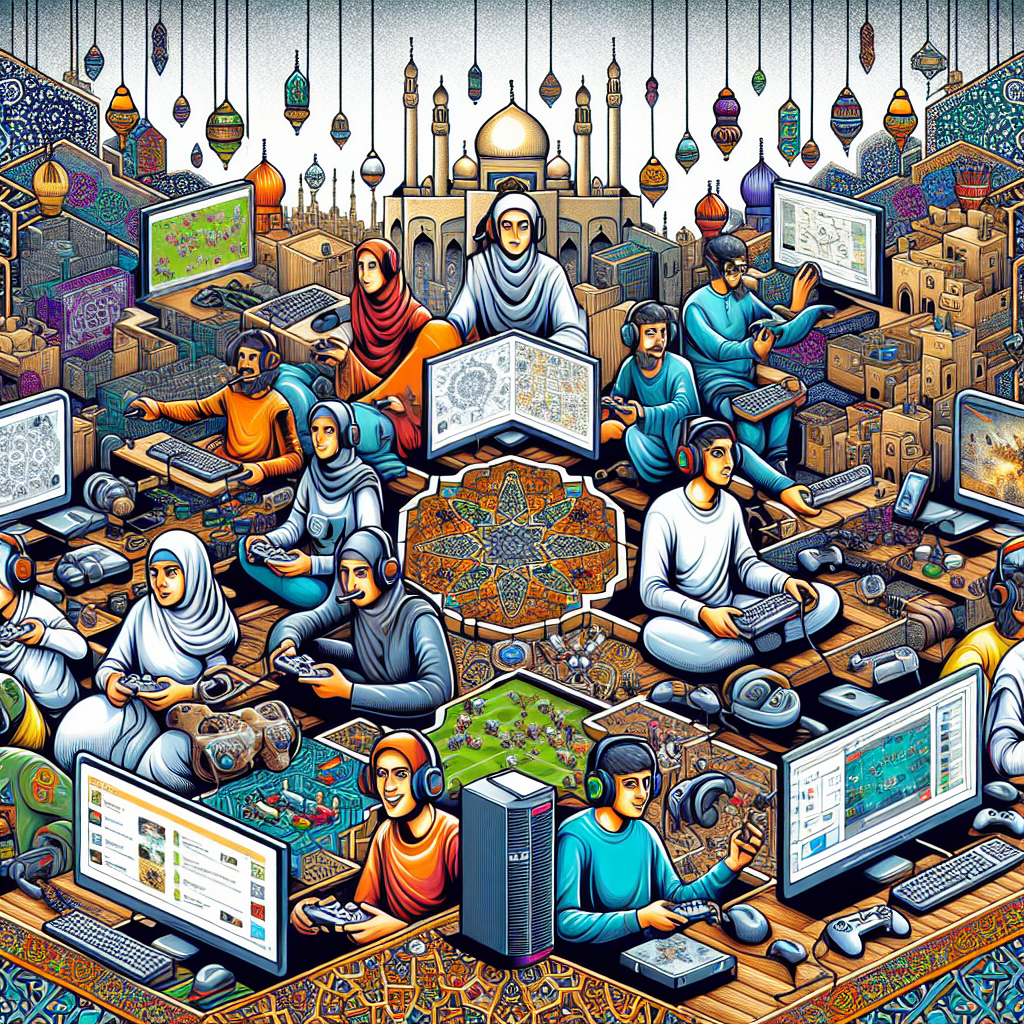Gamers Unite: Exploring the Growing Community of Online Gaming in the Middle East
As the sun sets over the ancient landscapes of the Middle East, another world begins to emerge — a world that transcends borders, languages, and cultures. This is the vibrant realm of online gaming, where millions of players connect, compete, and collaborate. Over the past decade, the Middle East has seen a remarkable growth in its gaming community, transforming the region into a key player in the global gaming industry.
A Booming Market
The Middle East gaming market has been experiencing unprecedented growth, driven by a young and tech-savvy population. According to recent industry reports, the region’s gaming market is projected to reach over $6 billion by 2025. This growth can be attributed to several factors, including increased internet penetration, smartphone accessibility, and the rise of esports.
With a majority of the region’s population under the age of 30, gaming has become a primary form of entertainment. Countries like the United Arab Emirates, Saudi Arabia, and Egypt have emerged as major gaming hubs, each contributing to a unique gaming culture. Local developers, in collaboration with international companies, are creating games that reflect the region’s rich history and diverse cultures, offering both entertainment and a sense of identity.
A Diverse Gaming Community
Online gaming in the Middle East is characterized by its diverse and inclusive nature. Players from various backgrounds come together to share their love for gaming, fostering a sense of community that transcends geographical and cultural boundaries. The rise of social media and streaming platforms like Twitch and YouTube has accelerated this phenomenon, enabling gamers to share experiences, strategies, and creativity with a global audience.
Moreover, Arabic-language content has flourished, catering specifically to regional players. Gaming influencers and content creators are playing a pivotal role in nurturing the community by streaming gameplay, hosting tournaments, and providing localised content that resonates with their audience. Initiatives like the Saudi eSports Federation and Egypt’s eSports Association are also facilitating the growth of competitive gaming and providing platforms for aspiring gamers to showcase their talents.
The Rise of Esports
One of the most exciting developments in the Middle East gaming scene is the rapid rise of esports. Competitions and tournaments are becoming increasingly popular, with both local and international events attracting thousands of participants and viewers. Landmark tournaments, such as the ESL Pro League and the PUBG Mobile World League, have helped establish the region as a formidable contender in the global esports arena.
Governments are recognizing the potential economic benefits of investing in esports and are beginning to support initiatives aimed at developing infrastructure, organizing events, and promoting local talent. As a result, cities like Riyadh and Dubai are positioning themselves as esports capitals, hosting grand events and international tournaments that draw attention and investment.
Bridging Cultural Gaps
Online gaming has the power to bridge cultural gaps, fostering understanding and collaboration among players from different backgrounds. In a region historically marked by conflict and division, gaming offers a platform for dialogue and connection. Players often find common ground in their shared love for gaming, cultivating friendships that extend beyond the digital space.
Games such as “League of Legends,” “Call of Duty,” and “FIFA” have managed to unite players across the Middle East, often leading to cross-border gaming experiences. Multiplayer titles allow players to team up with comrades or compete against each other, creating an environment where cultural differences fade away. This sense of camaraderie is particularly relevant for the younger generation, who are eager to explore diverse identities while forging meaningful connections.
Challenges and Opportunities
Despite the rapid growth of the gaming community in the Middle East, challenges persist. Issues such as internet connectivity in rural areas, censorship, and a lack of funding for independent game developers continue to hinder the industry’s full potential. Additionally, some players may face societal pressures that stigmatize gaming as a waste of time rather than a legitimate career path.
However, these challenges also present unique opportunities. The regional demand for high-quality localized content creates a niche market for developers to explore. Furthermore, the increasing interest in STEM education is encouraging young people to consider careers in game design, programming, and digital marketing, paving the way for future growth.
Conclusion
The online gaming community in the Middle East is thriving, fueled by passion, innovation, and a desire for connection. As gamers unite in this dynamic space, they are not only transforming the entertainment landscape but also reshaping cultural narratives and strengthening ties across borders. With continued investment, support, and collaboration, the Middle East is poised to emerge as a global leader in the gaming industry, where the bonds of friendship and competition will continue to thrive in the digital age.




